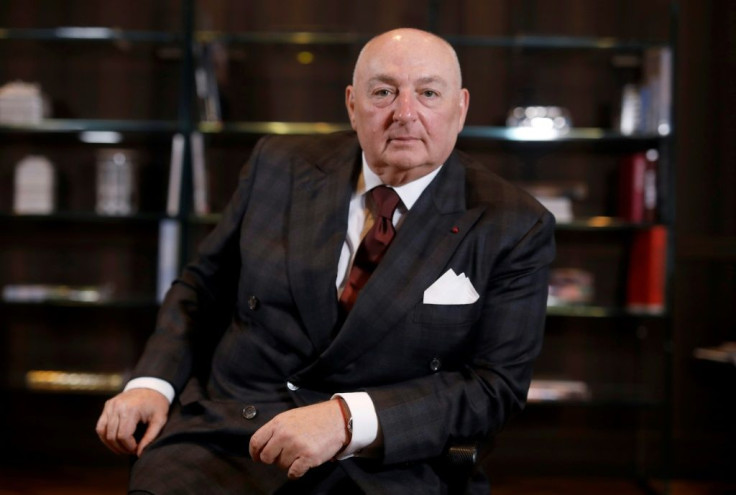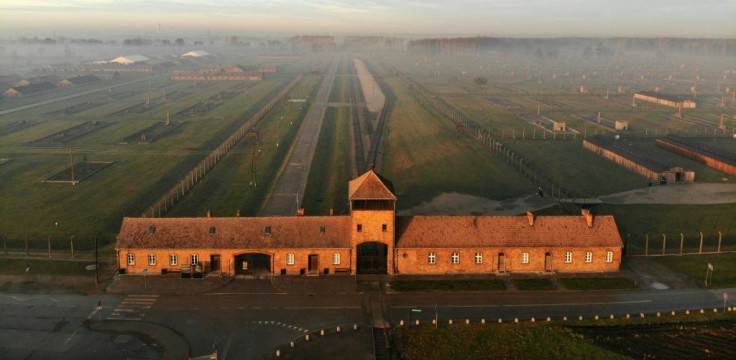Fight Anti-Semitism With 'Fear', Says Jewish Leader

Anti-Semitism is best fought with "fear" of a future tragedy, the head of the European Jewish Congress said ahead of events to commemorate the liberation of the Auschwitz-Birkenau death camp.
"When we speak about what was the reason for the war, how to make peace, how to avoid a future war, we have to have in mind one strong instrument: our fear," said Moshe Kantor, founder of the World Holocaust Forum.
"Leaders and populations, Jews and non-Jews, should be very much afraid of tragedy," he told AFP in an interview.
Leaders and dignitaries from 40 countries -- including Russian President Vladimir Putin, French President Emmanuel Macron and Britain's Prince Charles -- are set to travel to Jerusalem later this month to mark 75 years since prisoners were freed from the Nazi extermination camp.
The gathering seeks not only to remember the Holocaust and the killing of more than one million Jews at Auschwitz during World War II, but to unite leaders in the fight against anti-Semitism.
"The story should be frightening because mankind shall be frightened," said Kantor, adding that the fact the world now has weapons of mass destruction made it "more dangerous than in the 1930s".
Recalling the horrors of the death camp in then Nazi-occupied Poland is vital to avoid further atrocities, Kantor told AFP on Monday.
"The story should be frightening," said the Russian-Israeli billionaire.
The idea to organise the first in a series of events to remember the Holocaust came to Kantor 16 years ago when, he said, anti-Semitism was latent but still appeared like a "microscopic" problem.
Kantor blamed the 2008 financial crisis for sparking a new "crisis of anti-Semitism", because it hit the middle class hard, widened the wealth gap and gave rise to various types of political extremism.
"The middle class is very much polarised... either very poor or very rich, so they are not delivering the function of social stabiliser," said Kantor.

France, home to Europe's biggest Jewish community, in 2018 saw a 74 percent rise in the number of anti-Jewish offences reported to police compared with the previous year.
Kantor said such attacks were one reason for Jews opting to emigrate to Israel or other countries.
Tel Aviv University's Kantor Center said in 2018 there was a 13 percent rise globally in the number of "major violent cases" against Jews.
The Jewish population could "disappear completely as a people in Europe" for the first time in thousands of years, Kantor warned.
The January 23 commemoration in Jerusalem is set to focus on remembering Holocaust victims and combatting anti-Semitism, but it will not be divorced from current political events.
Foreign leaders will have to decide whether to hold bilateral meetings with Netanyahu, just weeks ahead of Israel's election in which the veteran premier is a candidate.
Confirmed guests include German President Frank-Walter Steinmeier, while the United States is yet to announce who will attend the event at Jerusalem's Yad Vashem Holocaust memorial centre.
In a significant blow for organisers, Polish President Andrzej Duda on Tuesday pulled out in protest at not being allowed to make a speech at the service.
Poland is in a bitter dispute with Russia, after Putin accused the country of having colluded with Nazi leader Adolf Hitler and of having acted in an anti-Semitic way at the dawn of the devastating conflict.
Duda said denying him the opportunity to publicly honour Polish citizens who perished in the Holocaust was tantamount to a "distortion of the historical truth".
For the moment, the key speeches will be delivered by Russia, Israel, France, the United States and the United Kingdom.
© Copyright AFP 2024. All rights reserved.





















